Rodric Braithwaite
AFGANTSY
The Russians in Afghanistan 197989
As she lay dying Jill said to me, with all her customary firmness, that I was not even to think of following her until I had finished this book. It is dedicated to her courageous and generous spirit.

Map 1: Afghanistan, 197989

Map 2: Kabul in 1980

Map 3: Storming the Palace

Map 4: The Pandsher Valley
Afganets (plural: Afgantsy): An inhabitant of Afghanistan; a hot sand-laden south-west wind; a veteran of the Soviet war.
It was the Soviet government which sent the soldiers into Afghanistan in 1979, but it was following in the tradition of the Russian governments which preceded it. Policy was directed from the Russian capital, Moscow. The majority of those who fought in Afghanistan were Russians. I have tried to use the words Soviet and Russian in a way that makes these subtle distinctions reasonably plain, and to ensure that the non-Russians in Afghanistan are given their historical due. But I have doubtless been inconsistent from time to time.
I have not adopted any of the standard scholarly systems of transliteration. My system attempts to be simple, phonetic, and as easy as may be for the non-Russian speaker (Russian speakers will be able to work out the original spelling for themselves). The sounds should be spoken as written. Some sounds which do not exist in English are represented thus:
kh, as in Khrushchev, sounds like ch in loch;
zh, as in Zhukov, sounds like ge in rouge.
An e at the beginning of a Russian word is usually pronounced ye. Thus Yeltsin not Eltsin; but Mount Elbruz not Mount Yelbruz (because in Russian the E in this case is a different letter).
I have used the English versions of names where these are more familiar: Moscow not Moskva; Peter not Pyotr; Alexander not Aleksandr. I have preferred to end Russian surnames in -ski. I prefer, inconsistently, Mikhail to Michael.
I have used the names of cities, streets, and other places as they were known at the time of the action.
For Afghan names I have used whatever seemed to be both common usage in English and simple to pronounce.
The index contains short descriptions of people, and of foreign and technical words, in the hope that this will be of help to the reader.
The young men went off to the war with enthusiasmbecause they had never been in a battle.
Thucydides1
Of course, the private soldiers field of vision is much more limited than that of his general. On the other hand, it is of vital importance to the latter to gloss over his mistakes, and draw attention only to those things which will add to his reputation. The private soldier has no such feeling. It is only to the officers of high rank engaged that a battle can bring glory and renown. To the army of common soldiers, who do the actual fighting, and risk mutilation and death, there is no reward except the consciousness of duty bravely performed.
Private Warren Olney, who fought in the Union army at the Battle of Shiloh, 18622
By no means everything that happened to me during the two years I was in Afghanistan is set down here. Some things I did not want to describe. We Afgantsy talk among ourselves about things which those who were not in Afghanistan may not understand, or will understand in the wrong way.
Vitali Krivenko3
The explosion of violence which erupted in Herat in March 1979 was beyond anything that had happened since the bloody Communist coup a year earlier. Resistance to the Communists was already spreading throughout the country. But this was a full-scale revolt in a provincial capital, one of Afghanistans most important cities, an ancient centre of Islamic learning, music, art, and poetry. Power fell entirely into the hand of the insurgents, and it was a week before Afghan government forces finally regained control after the spilling of much blood.
The Communists had promised much: Our aim was no less than to give an example to all the backward countries of the world of how to jump from feudalism straight to a prosperous, just society Our choice was not between doing things democratically or not. Unless we did them, nobody else would [Our] very first proclamation declared that food and shelter are the basic needs and rights of a human being Our programme was clear: land to the peasants, food for the hungry, free education for all. We knew that the mullahs in the villages would scheme against us, so we issued our decrees swiftly so that the masses could see where their real interests lay For the first time in Afghanistans history women were to be given the right to education We told them that they owned their bodies, they could marry whom they liked, they shouldnt have to live shut up in houses like pets.
But the Communists knew that such ideas would not be welcome to the pious and conservative people of Afghanistan, and they were not prepared to wait. They had expected resistance and acted ruthlessly to put it down: [I]t was not the time to put on kid gloves. First and foremost we had to hold on to power. The alternative was to be liquidated and for Afghanistan to revert to darkness.4 So they started a massive reign of terror: landowners, mullahs, dissident officers, professional people, even members of the Communist Party itself, were arrested, tortured, and shot in large numbers. When their friends in Moscow protested, they replied that what had worked for Stalin would work for them too.
There are various accounts of what triggered off the violence in Herat. Sher Ahmad Maladani was there at the time and later commanded a local band of mujahedinMuslim fighters against the Communists and the Russians. He said that the peasants in an outlying village, incensed by a decision of the local Communists to force their daughters to school, rose up, killed the Communists, killed the girls for good measure, and marched on the city.5 Others said that the rising took place on orders from migrs in Pakistan, who had planned for a countrywide rebellion. Some said that the rising was led by mutinous soldiers from the 17th Division, the local Afghan army garrison. Still others said it was stirred up by agents from Iran.
Whatever the basis for these stories, the peasants of the neighbouring villages gathered at their mosques on the morning of Thursday, 15 March, and moved towards the city carrying religious slogans and brandishing ancient rifles, knives, and other improvised weapons, destroying the symbols of Communism and the state as they marched. They were rapidly joined by the people of Herat itself. The mob flooded down the pine-tree avenues that led to the city, past the great citadel and the four ancient minarets in the north-western corner, through the Maliki Gate, and into the new suburbs to the north and east where the provincial governors office was situated. They stormed the prison, sacked and torched banks, post offices, newspaper offices, and government buildings, and looted the bazaars. They tore down the red flags and the portraits of the Communist leaders. They beat people not wearing traditional Muslim clothes. Party officials, including the governor himself, were hunted down and killed.6 So were some of the Soviet advisers who were working in the city and were unable to make their escape. By noon most of the city was in rebel hands. That evening there was dancing in the bazaars.7

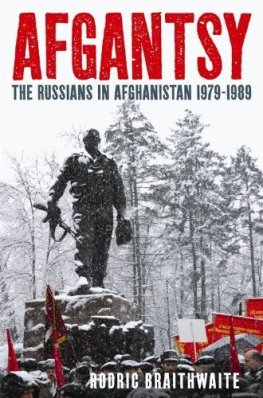
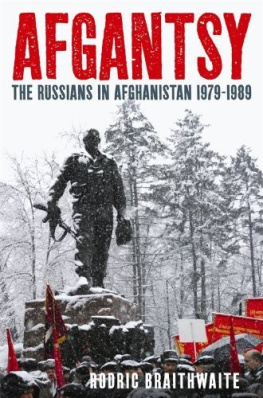
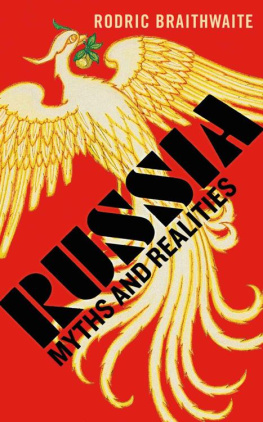

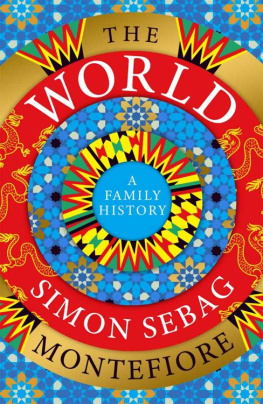
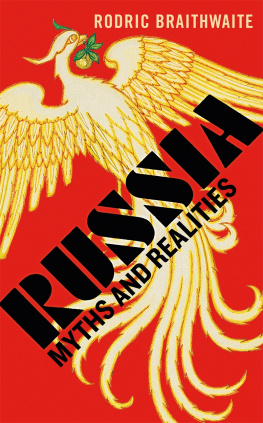
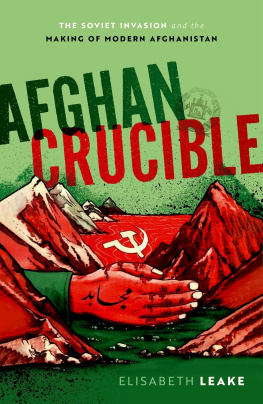
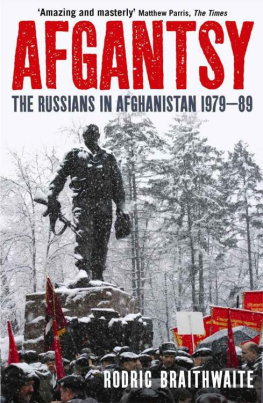
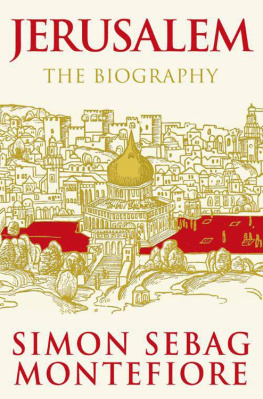
 Map 1: Afghanistan, 197989
Map 1: Afghanistan, 197989 Map 2: Kabul in 1980
Map 2: Kabul in 1980 Map 3: Storming the Palace
Map 3: Storming the Palace Map 4: The Pandsher Valley
Map 4: The Pandsher Valley